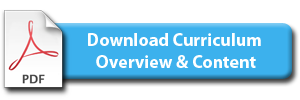Contact: Mr D. Hewitt
National Curriculum
The Ecclesbourne School follows the National Curriculum
-
Design, use and evaluate computational abstractions that model the state and behaviour of real-world problems and physical systems
-
Understand several key algorithms that reflect computational thinking [for example, ones for sorting and searching]; use logical reasoning to compare the utility of alternative algorithms for the same problem
-
Use 2 or more programming languages, at least one of which is textual, to solve a variety of computational problems; make appropriate use of data structures [for example, lists, tables or arrays
-
Design and develop modular programs that use procedures or functions
-
Understand simple Boolean logic [for example, AND, OR and NOT] and some of its uses in circuits and programming
-
Understand how numbers can be represented in binary, and be able to carry out simple operations on binary numbers [for example, binary addition, and conversion between binary and decimal]
-
Understand the hardware and software components that make up computer systems, and how they communicate with one another and with other systems
-
Understand how instructions are stored and executed within a computer system; understand how data of various types (including text, sounds and pictures) can be represented and manipulated digitally, in the form of binary digits
-
Undertake creative projects that involve selecting, using, and combining multiple applications, preferably across a range of devices, to achieve challenging goals, including collecting and analysing data and meeting the needs of known users
-
Create, reuse, revise and repurpose digital artefacts for a given audience, with attention to trustworthiness, design and usability
-
Understand a range of ways to use technology safely, respectfully, responsibly and securely, including protecting their online identity and privacy; recognise inappropriate content, contact and conduct, and know how to report
Curriculum Intent
We have mapped our curriculum content against the national curriculum and have chosen a variety of units which ensure full coverage in line with national requirements. We also strongly believe that we should develop student’s ICT skills as well as programming ability and therefore have included a range of topics which allow students to become competent in core computer usage. We have looked at GCSE ICT and GCSE Computing and have ensured that we have pulled content down from both disciplines in order to prepare our students for either route. We have chosen to use Scratch as our first programming language as students coming up from Primary are familiar with this package before then moving on to Small Basic which is a text based language similar to VB which is used at GCSE.
Throughout the programme of study, students will undertake creative projects that involve selecting, using, and combining multiple applications to achieve challenging goals. They will also have visited issues surrounding E-safety and will understand a range of ways to use technology safely, respectfully, responsibly and securely.
The KS3 programme is devised to ensure students use the knowledge, skills, techniques, processes to respond to the world around them. It will ensure students are equipped and ready to extend their studies across the curriculum and be able to use ICT competently in their wider lives beyond KS3.
Curriculum Implementation

If you have any questions or queries relating to the ICT or Computing curriculum please email headofict@ecclesbourne.derbyshire.sch.uk for more information.